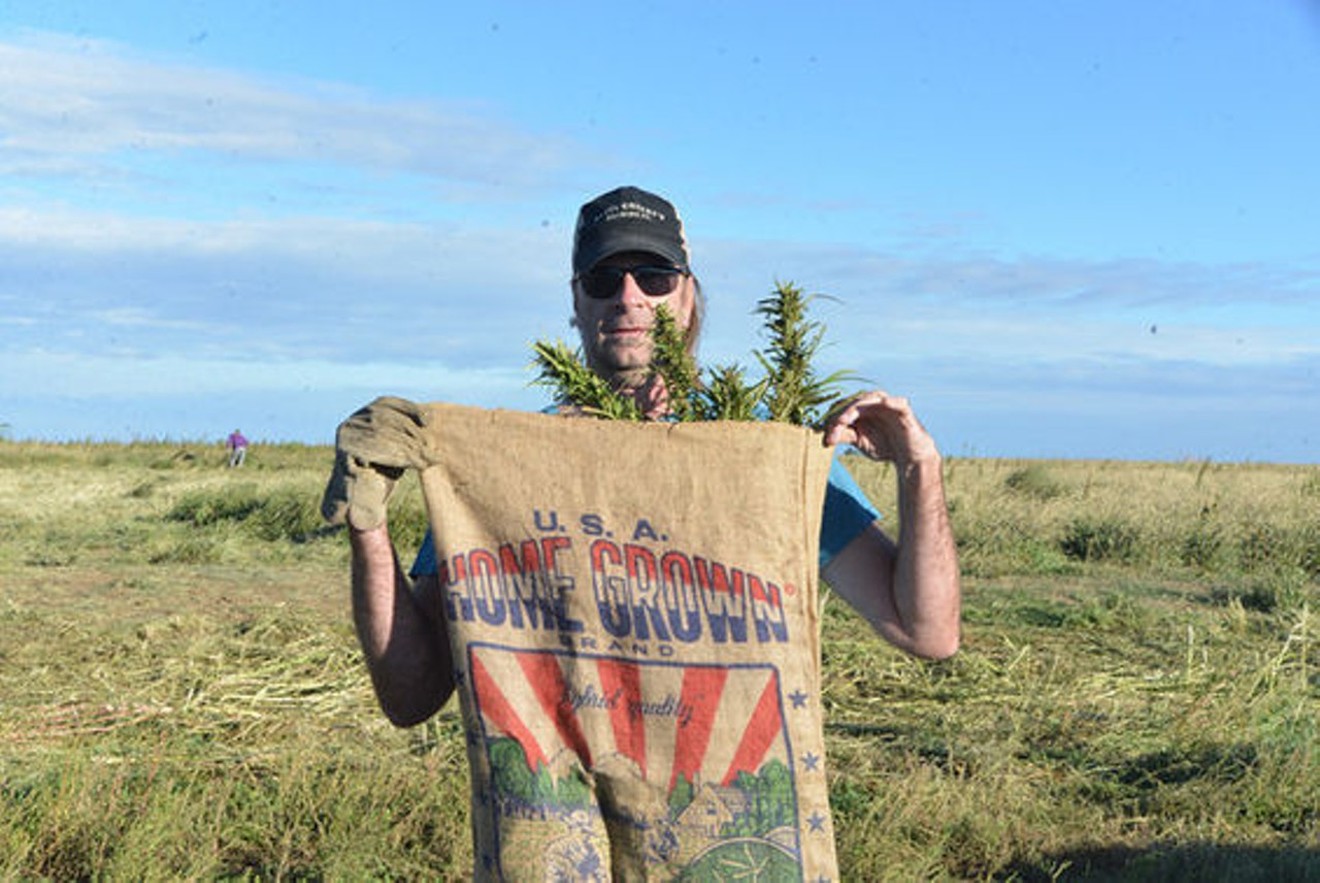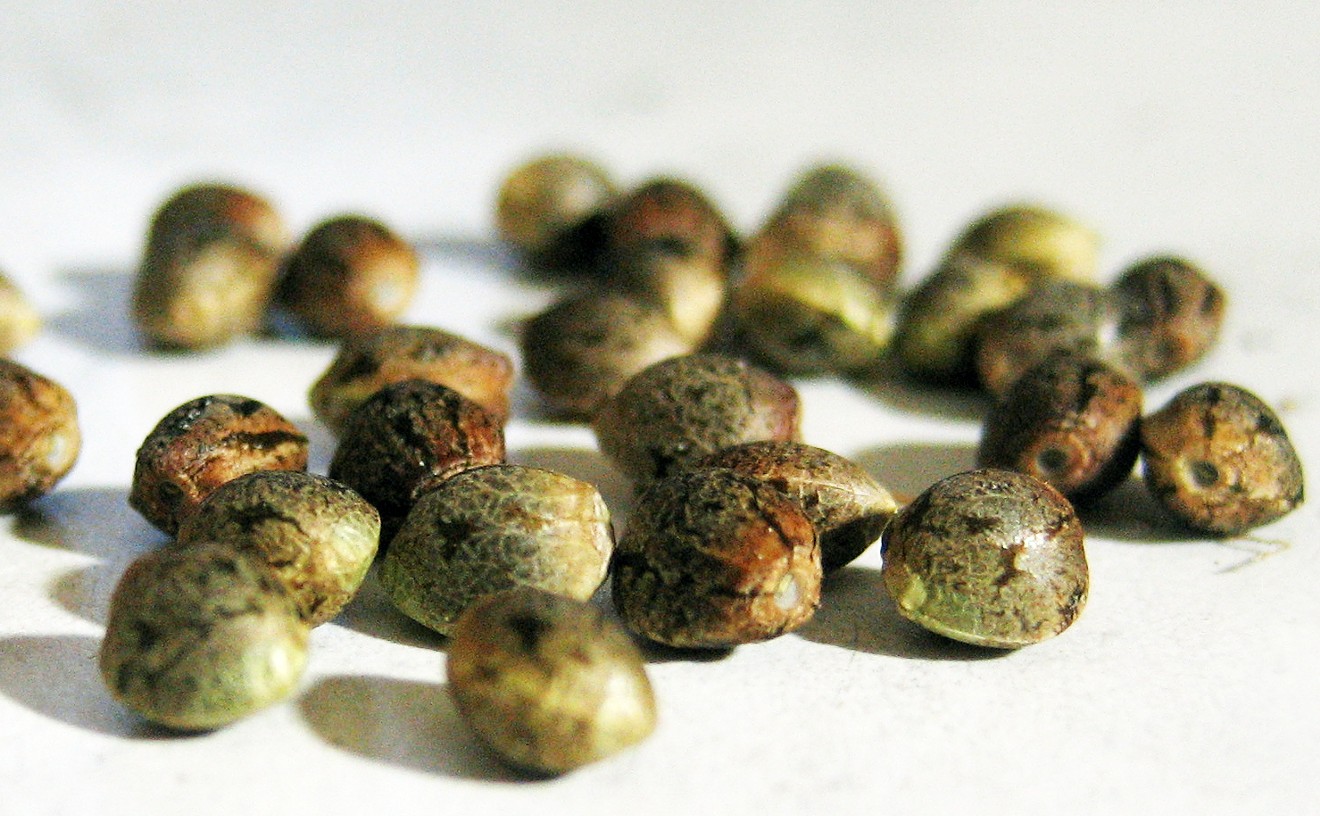The 2018 Farm Bill has passed both the United States Senate and House of Representatives, with President Donald Trump expected to sign it — including its new provisions regarding hemp.
The language in the Farm Bill would provide some closure on the plant's ambiguous status across fifty states. But this big step might also create more questions than it answers.
A major set of agricultural policies voted on every five years or so, the circa 2014 Farm Bill had included routes for states to legalize hemp via research and pilot agriculture programs. Under the new version, hemp would no longer be in the crosshairs of the Drug Enforcement Administration, removing any suggestion that it's a Schedule I substance like its still-illegal cousin, marijuana.
"This is a pivotal and long-overdue moment for hemp in America," Shawn Hauser, a Vicente Sederberg hemp attorney, says in a statement. "Following decades of prohibition under outdated drug laws, hemp will finally be treated like other crops and legal for U.S. farmers to grow. This historic legislation holds a lot of promise for our economy, the environment, and future generations.
But will hemp really be treated like other crops? If the Farm Bill is signed by Trump, those wishing to grow hemp would still have to undergo background checks and surmount obstacles unknown to farmers growing other crops. And anyone with a drug felony in the past decade would be barred from applying to grow hemp altogether.
Such federal requirements as GPS coordinates, fingerprints and background checks don't exist in the Colorado Department of Agriculture's current hemp registration program, which has over 1,000 active licenses for hemp farming. As the first state to legalize recreational marijuana in 2012, Colorado was a natural candidate to get into the hemp trade under the previous Farm Bill. It currently has the most acreage allotted to registered hemp farming in America and has a robust, diverse hemp and CBD industry.
However, legalization of hemp at the federal level means that Colorado's once-trailblazing program is likely to require some tweaking.
"For a state with an existing hemp pilot program, like Colorado, there might need to be certain changes to reconcile the verbiage, mechanics and procedures of state law with the USDA-regulated hemp scheme," explains Hoban Law Group attorney Garrett Graff, who specializes in regulatory and legislative practices for licensed hemp businesses.
Graff applauds the "clarification and affirmation" of legalizing hemp at the federal level, and doesn't think the framework of Colorado's hemp regulations will change much beyond some fine-tuning to align the state's rules with forthcoming federal policy.
"For all intents and practical purposes, I don't expect an overhaul being necessary, nor do I expect an interruption in Colorado's hemp pilot program," he says. "This also removes any uncertainty, whether the DEA is involved with [hemp enforcement] at all."
The provision of the Farm Bill banning drug felons from getting into the field has some established hemp farmers and business owners worried, though, either for themselves or others impacted by the country's war on drugs. Hemp advocates say that banning anyone with a drug felony within the past ten years from farming hemp seems discriminatory against both hemp and those who have been arrested for marijuana-related crimes.
"It's a little distressing and conflicting," explains Grow Hemp Colorado founder Veronica Carpio, who also owns a hemp coffee business in Colorado. "I feel like the language, specifically the discriminatory language on the drug-felon ban, should've been completely removed."
Carpio penned an op-ed in July criticizing an earlier draft of the Farm Bill that first proposed the ban. Arrested for felony marijuana sales while operating as a medical marijuana dispensary owner in 2011, Carpio believes she would still be able to own her hemp businesses thanks to recent additions to the bill that allow previously registered hemp business owners to be grandfathered in, but only if they're in programs that are compliant with the Farm Bill.
"Part of that's a little confusing, because some people think Colorado is not a Farm Bill-compliant program," she says. "But we have registration here, so by that default language, we should be okay." But Carpio admits she isn't 100 percent certain that's how the bill will be implemented, and whether she's allowed to continue operating or not, she despises the ten-year ban on drug felons getting into hemp farming.
"So people who are convicted rapists, murderers, tax evaders — crimes that have victims involved — can participate in hemp, but marijuana felons can't?" she asks. "It's a little distressing that there's a group of people advocating to ban those who have been affected the most by the war on drugs. It's pretty tragic, when it comes to any equality or potential progress."
And Coloradans won't be the only ones affected by the ban, she adds. "It eliminates a lot of opportunity for people in in the long run, especially in states that haven't legalized [marijuana], like Kentucky."
Other questions surrounding the Farm Bill center on how it affects the country's rapidly growing CBD industry. A compound found in both psychoactive marijuana and hemp, CBD falls into a murky legal area since it's a derivative of both plants, with one (hemp) about to be legal and the other (marijuana) still federally illegal.
Graff believes that previous court rulings and federal opinions about the legality of hemp's derivatives have already legalized CBD at the federal level, but recent enforcement actions and conflicting opinions from law enforcement suggest otherwise. He thinks that legalizing hemp will increase the momentum for full-scale CBD legalization, but adds that "the Farm Bill doesn't clarify or affirm that."
Carpio is less positive, pointing to recent rulings by the Food and Drug Administration restricting CBD for human consumption as blocking any hopeful interpretations of the Farm Bill.
Both Graff and Carpio agree that Colorado's relatively progressive hemp laws put the state in a good position, even as federal legalization increases competition. "We've been down this road before, and figured out what other states haven't figured out," Graff says. "Many other states will be going through these growing pains that Colorado went through three, four or five years ago."
One of those growing pains for Colorado farmers has been hot hemp, or hemp that has more THC than the 0.3 percent federal limit. Under current Colorado Department of Agriculture rules, farmers have to destroy any hemp that tests above 0.3 percent THC.
Some members of Colorado's hemp industry had hoped the Farm Bill would raise the THC level to 1 percent, particularly proponents of Amendment X. That measure, approved by statewide voters in November, took the definition of industrial hemp out of the Colorado Constitution in order to better align the state's hemp policy with the federal government's.
But the Farm Bill kept the 0.3 percent limit, where it has been for decades. It does, however, allow farmers to try to mitigate hemp with high THC potency before they must totally destroy their crop.
[
{
"name": "Air - MediumRectangle - Inline Content - Mobile Display Size",
"component": "12017618",
"insertPoint": "2",
"requiredCountToDisplay": "2"
},{
"name": "Editor Picks",
"component": "17242653",
"insertPoint": "4",
"requiredCountToDisplay": "1"
},{
"name": "Inline Links",
"component": "18838239",
"insertPoint": "8th",
"startingPoint": 8,
"requiredCountToDisplay": "7",
"maxInsertions": 25
},{
"name": "Air - MediumRectangle - Combo - Inline Content",
"component": "17261320",
"insertPoint": "8th",
"startingPoint": 8,
"requiredCountToDisplay": "7",
"maxInsertions": 25
},{
"name": "Inline Links",
"component": "18838239",
"insertPoint": "8th",
"startingPoint": 12,
"requiredCountToDisplay": "11",
"maxInsertions": 25
},{
"name": "Air - Leaderboard Tower - Combo - Inline Content",
"component": "17261321",
"insertPoint": "8th",
"startingPoint": 12,
"requiredCountToDisplay": "11",
"maxInsertions": 25
}
]













